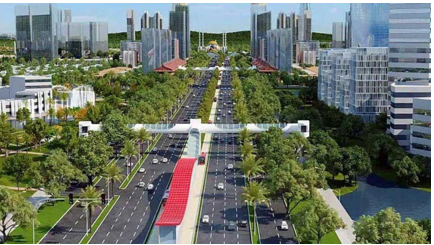i INP-WEALTHPK
Ayesha Saba
Pakistan’s real estate sector is undergoing a significant transformation, driven by the rise of smart cities and emerging urban hubs across the country.

Talking with WealthPK, Saeed Akhtar, an urban development expert at the Physical Planning and Housing Section of the Ministry of Planning, Development & Special Initiatives, said this shift is not only reshaping the property market but also addressing the growing demand for modern, sustainable, and technologically advanced living spaces.
He pointed out that the rise of smart cities such as Capital Smart City near Islamabad and Ravi Urban Development Project in Lahore reflects a growing demand for integrated living environments. These developments are characterized by digitized infrastructure, energy-efficient housing, intelligent traffic management, and comprehensive waste management systems.
He further noted that the success of smart cities lies in their ability to offer long-term liveability and cost-effective infrastructure solutions. They are not just about luxury but about urban resilience and economic productivity, he said.
He viewed that a critical aspect driving the real estate growth is the increasing demand for mixed-use developments that combine residential, commercial, and recreational spaces. Modern buyers and tenants are looking for integrated communities where they can live, work, and socialize without long commutes.
The developers are responding by incorporating shopping malls, offices, and green spaces into housing projects, creating a more holistic living experience. This trend is expected to gain further momentum as urbanization intensifies and lifestyle preferences shift toward convenience and community-centric living, he maintained.
The official further emphasized the need for robust regulatory frameworks to prevent speculative bubbles and ensure transparency in real estate transactions. “Challenges like inconsistent property valuations and delayed approvals for housing projects have been persistent issues, but recent initiatives, such as digital land records and streamlined approval processes, are steps in the right direction,” he noted.
Saeed argued that public-private partnerships will be crucial in bridging the infrastructure gap and ensuring that these new urban centres are accessible and well-connected. Affordability is a key aspect of smart housing, yet it remains a significant challenge for Pakistan. He highlighted that property prices and construction costs have surged, making homeownership increasingly out of reach for most people.
Credit: INP-WealthPk



